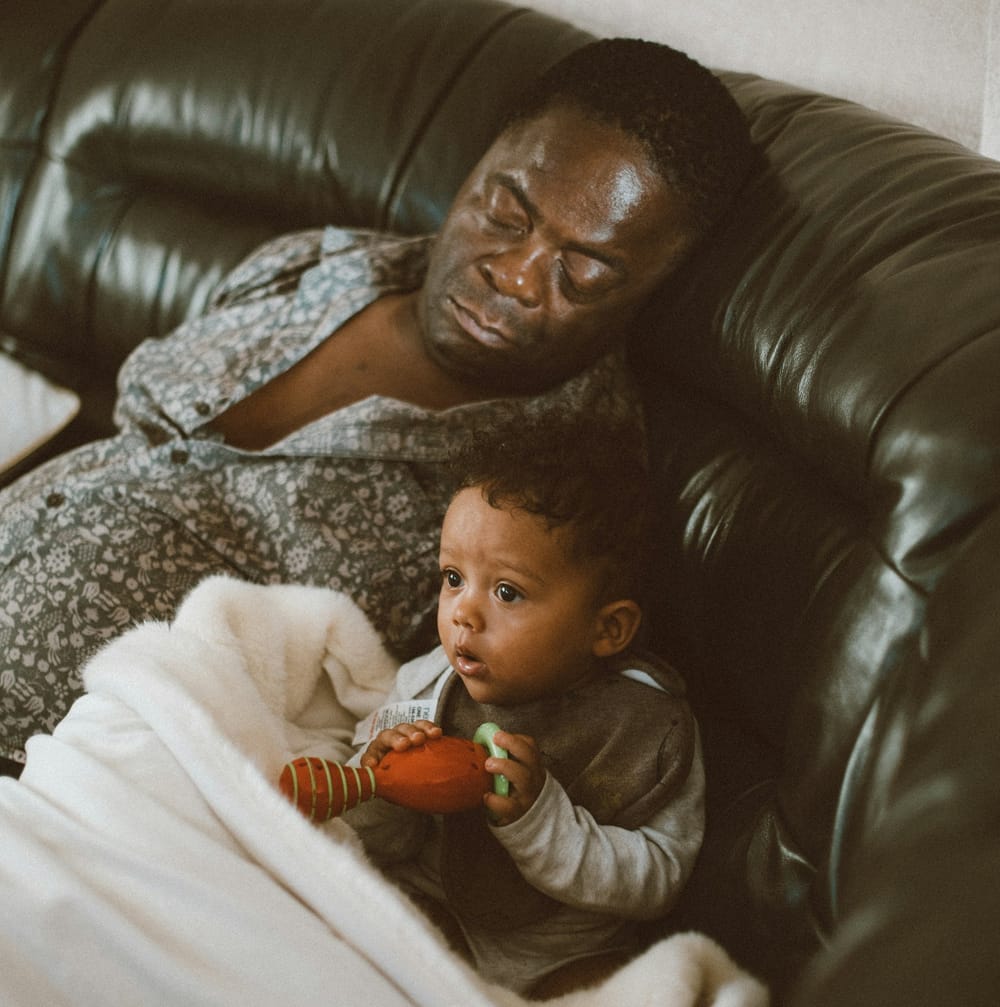Ever since my first of three children was born in 2001, I became hyper aware that how I acted in the world was going to be far more impactful on them than my verbal instructions on how to act.
We’ve all been in the toy store where some parent is screaming at their child, “Calm down! Stop crying! Or we’re not getting any toys today!” The irony is almost comical. A parent teaching calmness by modeling chaos.
I’ve watched more parents than I care to mention spank their child in public for “acting out.” Or tell their kids to be honest, only to undercut the message in small but devastating ways. Like telling the movie ticket clerk, “My daughter is 11,” to snag the cheaper price, when she’s really 12, standing right there hearing the lie.
Just like that, all the “be honests” crumble with one quick transaction.
Kids notice everything.
They overhear when we tell a story on the phone that isn’t entirely kosher.
They hear us preach “respect all people” and “don’t be racist” yet see that every chair at our dinner table is always filled with people who look exactly like us.
They hear us lament the plight of the homeless but watch us roll up our car windows at intersections, never offering a dollar, a bottle of water, or even eye contact.
These contradictions don’t just chip away at our credibility. They erase it and the ethics we’re trying to teach.
It was all these realizations that made me determined to try be the best man I could be. My kids were little microscopes studying every move I made. If I wanted to be a good father, I couldn’t just lecture about ethics. I had to embody the values I wanted them to carry.
I didn’t always get it right, but they definitely made me a better man.
Still, there was one area I could never quite get right.
How I interacted with my father. Their grandfather.
To put it mildly, my dad wasn’t a good father.
There’s a scene in the new film “28 Years Later” where a father punches a wall, leaving a gaping dent in the drywall. I felt a visceral jolt watching it. It reminded me of the almost identical dent in the wall outside my bedroom door when I was just ten. It stayed there for three years because we couldn’t afford to repair it.
I’ll save the details of the rest of my childhood for another day, but I grew up watching my dad treat my late mother poorly and avoid responsibility for his two sons. He often claimed he was “working,” though our electricity was several times at risk of being shut off. Phone disconnected for not paying the bill.
He seemed to find more time for “extracurricular activities” with people outside the family than for us.
I never stopped resenting that and some even more horrifying behavior.
Thankfully, therapy in my 40s helped me untangle a lot of the mess, but the truth remained: I didn’t like my father. I didn’t respect him, his life, his extreme ideas, nothing. And my kids could see it.
They watched me give him cold, clipped greetings. They saw the stoic exchanges, the half-assed hugs at family gatherings. They noticed that I never said “I love you” to him, though readily sharing that phrase with my kids, my mom and friends and other family members.
In contrast to how I talked to my father, they saw me light up when I called my mother. They heard me say, “Let’s call Grandma!” with genuine excitement. They saw me speak to her several times a week. The difference was unmistakable.
At times, I tried to fake it, forcing politeness around my dad in front of them. I was afraid my kids would mirror my behavior and one day speak to me that way. A terrifying thought, if I’m being honest.
But kids are smarter than we give them credit for. They sense authenticity. They know when you’re faking it.
As they got older, I shared with them, in gentle but honest terms, that my childhood wasn’t easy. I didn’t give them the darkest details, but they were perceptive enough to connect the dots.
Though I knew I had always been super close and involved with my three kids, at age 20, my middle son said something that lifted a weight off me. After years of watching me struggle with my father, he looked me in the eye and said:
“My relationship with you is unshakable. We’ll never have the same thing you and Grandpa deal with.”
That one sentence was a gift.
It reminded me that while modeling good behavior matters. A lot. Modeling honesty matters just as much. Kids don’t just learn from how we treat strangers or friends or who we invite into our homes. They also learn from how we handle the relationships that wound us.
Today, I remain exceptionally close with all three of my kids. Despite being scattered across three cities, I speak with each of them multiple times a week. They know they’re loved. They know they’re safe. They know they don’t have to inherit the brokenness that haunted me.
And maybe that’s the ultimate lesson: we can’t always rewrite the story of our own parents. But we can write a better story for our children.
This post originally appeared on Medium and is edited and republished with author's permission. Read more of Jeffrey Kass' work on Medium.
